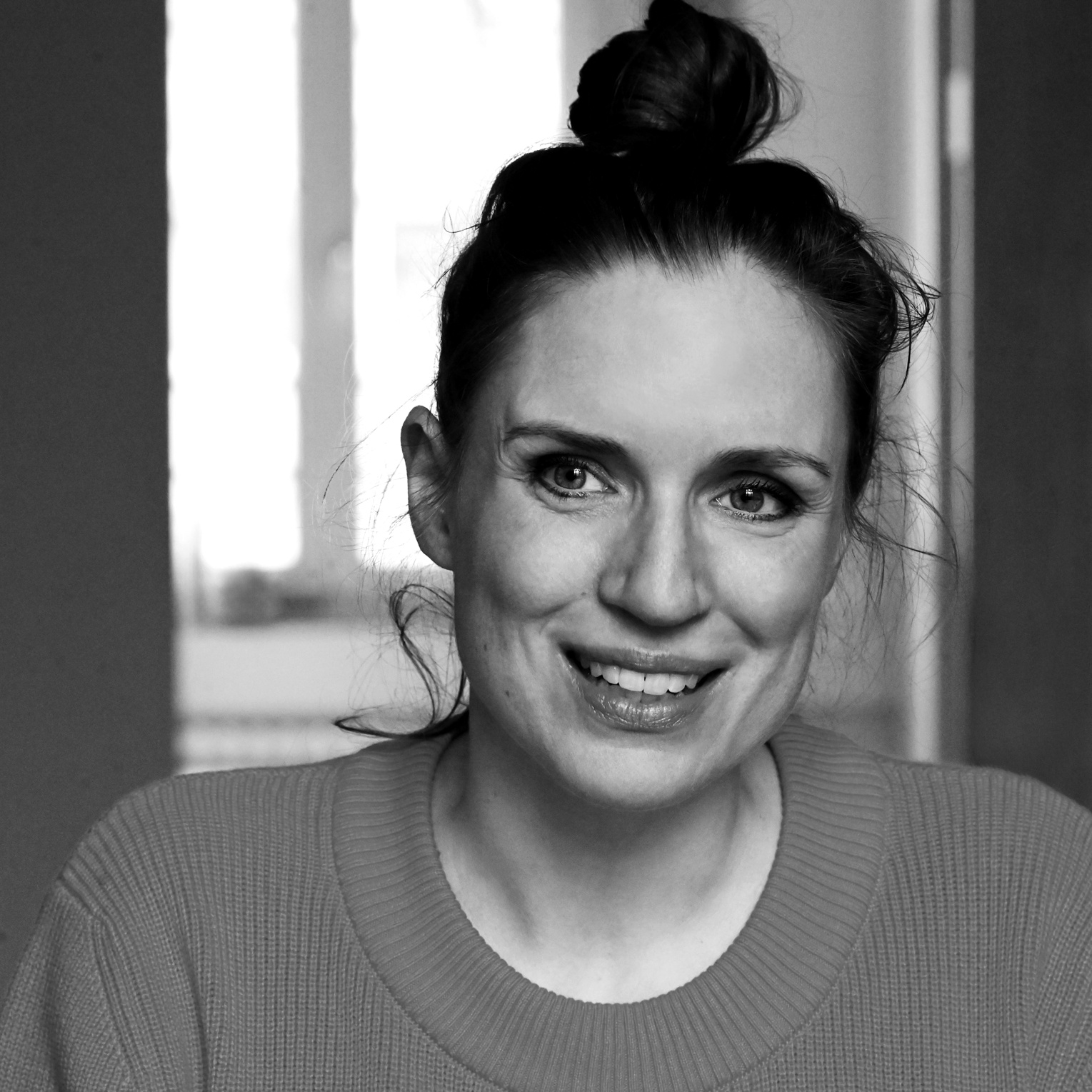“Parents need to understand that homework is different today.”
Prof. Knut Neumann, Director of the IPN Department of Physics Education, talks to Julia André and Britta Kölling about parents’ perspectives on artificial intelligence in schools.

Knut Neumann: Before we address the question of how parents assess the use of artificial intelligence, or AI, in schools and what significance they see in AI for their children's future careers, I would like to ask you both when you were last truly amazed while watching a child or young person using artificial intelligence.
Britta Kölling: What amazes me most is how independently students use it. Young people from the so-called preparatory classes, for example, always emphasize that they can ask a generative language model like ChatGPT any questions they want, and they think that's great. Apparently, they don't dare to ask “everything” in class. I was also amazed that one of these students, who uses AI for research, repeatedly checks whether the answers are correct. He looks at which sources are trustworthy. He has an extremely high level of proficiency in checking the output of the language model and can thus assess very specifically what is correct and what is not. During the lesson, an incorrect output from the AI led us to discuss how artificial intelligence is actually trained.
Julia André: Unfortunately, I am unable to share such an inspiring story. I don't work in schools. We have our own series of events at the Körber Forum in Hamburg, where we not only talk about new technologies, but also demonstrate them live. I was very surprised when an expert took us into the world of deep fakes. I must say, I felt a little dizzy seeing what is possible and how credulous our perception is.
Knut Neumann: Julia, let's turn to the survey on AI that the Körber Foundation conducted with parents. What are the key findings of the survey?
Julia André: Last year, we surveyed parents of children, or rather adolescents between the ages of 12 and 18, for the first time because we noticed that the home environment is considered very important in the education debate. The family environment has a major influence on the educational biographies of children and adolescents. However, these are mostly just statistical figures. To put it bluntly: if parents have more than a meter of books on their shelves, their children will graduate from high school. But we still don't know much about what parents are actually thinking, what they want for their children, what concerns they have, what image they have of school, or how they envision their children's professional future. The survey focused on education and professional future. We repeat this survey every year and then set thematic priorities. This year, we looked at what parents think about AI and whether they want their children to be involved with it or not.
We have discovered many interesting correlations. Parents are aware that AI is a hot topic. They know that their children will need general AI skills and that they must be trained in how to use AI to have opportunities in the working world. At this point, there was 78% agreement. Despite the high level of agreement, however, parents are skeptical when asked about the use of AI tools in schools. Their biggest concern is that students will just cheat.
Britta Kölling: I'd like to interrupt briefly, because this is an interesting point. It's not just parents who have this concern, but teachers too. In teacher training courses, this is always one of the first questions that comes up: How can I prevent cheating when using AI in the classroom?
Julia Andrè: We also asked parents about their own experiences with AI and their prior knowledge of AI. There are significant differences here, depending on the practical experience parents have. And this, in turn, is related to their level of education. Parents who say they have used AI tools themselves, which was about 40% of those surveyed, are significantly more optimistic and positive. They are relaxed about the topic and are in favor of AI being used in schools. The other 60% are unsure about their opinion. However, this means that children whose parents do not use AI live in families where little is said about it. These children therefore come to school with completely different prerequisites. My wish is to address this issue. When it comes to questions of educational justice and equal opportunities, we know that family makes all the difference, and this also plays a major role in AI. We also asked parents whether AI is used in their children's schools. Only 13% of parents are certain that this is already the case. The vast majority say, “No, not yet.
Knut Neumann: Britta, do you have any idea why its use in schools is still so limited? Could it be because teachers agree with the criticism? But then they would also have to see its potential, just like parents do.

»We need Wto educate people that AI tools can be used in a very thoughtful and intelligent way.«
Julia André
Britta Kölling: Of course, I can only speculate about the causes. One aspect is the lack of further training for teachers, i.e., simply having the time to devote to it. Schools have a duty to prepare students for the future. And the future will be significantly shaped by AI. We cannot change that. And that is why it is the educational mandate of schools to integrate AI. But we must first equip teachers with the necessary skills – because if they are not equipped, they in turn cannot work effectively with students. And that leads to a kind of vicious circle: students deal with it secretly and without reflection, for example, sending their homework to AI via screenshot.
AI solves the homework assignment, and there is no interaction with the task, no thinking takes place. In the worst case, this vicious circle continues when the teacher corrects the homework assignment with AI. At that point, no one has done any thinking. That is why it is important to empower teachers to use AI. These skills must be acquired through training, but also through access. So, we have to ensure that schools have access that complies with data protection regulations so that they can use AI. The next step is to think about systematic implementation.
Knut Neumann: What you're saying is in line with the recommendations of the German Ethics Council on the use of AI, which emphasizes that the use of artificial intelligence should expand the scope of action for all students, not narrow it, in the sense of: “I'll stop thinking now and leave it to AI.” Parents also want their children to learn independence, communication skills, and a willingness to learn, i.e., self-regulated learning and independent thinking, at school for their future careers. The question is: How can we support this with AI applications? Julia, do you have any insights from the study on what parents specifically have in mind?
Julia André: Parents fear that the use of AI in the classroom will lead to cheating. We have already discussed this. The second concern is that children will learn less on their own. Incidentally, this contradicts the desire for their children to learn independence as a skill. There is also concern that incorrect content will be taught and that teaching will become less personal and less human. However, as the questions continue, there is also agreement that AI can enrich teaching, that children can be better supported individually, and that teachers can also be relieved of some of their workload. It is important to explain that all these concerns are not necessarily associated with the use of AI, but that AI tools can be used in a very deliberate and intelligent way. It depends on the task at hand. This also means that homework assignments and perhaps even exams will change.
Britta Kölling: I actually believe that some parents' ideas about school are still very much influenced by their own schooling and by the textbooks and worksheets they used back then. I believe that new types of assignments and new exam formats are already becoming very popular and are definitely becoming more widespread. Nevertheless, we must take parents' concerns seriously. Part of the problem is that both teachers and parents still talk about generative AI when they think about AI and do not even consider adaptive intelligent systems, for example. At this point, AI offers possibilities that are not yet visible to parents. And that is exactly where we need to educate them.
Knut Neumann: How much experience do parents themselves have with such systems, and to what extent do they actually use them? Do you have any results from your survey, Julia?
Julia André: We asked parents about their previous experience. Essentially, everyone probably uses AI, except for people who don't use smart devices. Presumably, everyone was thinking more about generative AI. Forty percent said they had used such tools themselves, either privately or professionally. Only 1% said, “I've never heard of it.” Forty-eight percent said, “I haven't tried it yet, but I have an idea of what it can do and how it works.” We also asked, “Do you talk to your children about the topic, perhaps try out applications together?” Among those who have used an AI tool themselves, 72% say they talk about AI and its opportunities and risks within the family. So, trying it out makes all the difference. This is reflected in the attitudes and actions of parents in how they deal with their children.
»AI offers opportunities that are not yet visible to parents.«
Britta Kölling

Knut Neumann: But we can't say that schools are now responsible for this. Schools can teach the basics and support children in their learning, as well as in recognizing the dangers that the use of AI may entail. The question is, how can we improve the coordination between schools and parents?
Britta Kölling: As a school principal, this question is naturally very important to me. I find it difficult to say that parents also have to work with AI at home. Just as teachers need further training, parents would also have to learn how to use AI. It would be much more important to enable students to use AI as a learning tutor or to train GPTs (Generative Pre-Trained Transformers, editor's note). I don't see it as the school's educational mandate to also train parents. Schools cannot afford to do that. Nevertheless, there must of course be communication, and that includes the entire school community.
Julia André: Schools are not responsible for educating parents. That would be asking too much, but communication is important and currently insufficient. Only 9% of respondents said that there is some form of communication about this. That is very little. It is important to have a common understanding of how schools work today and what the learning and educational goals are. Some parents still have an outdated image of the school system. They think: You let someone else write your homework? That was discussed in school, and that is exactly what the assignment is. This needs to be communicated to parents. Parents need to understand that exams may work differently today and that homework is assigned differently.
Britta Kölling: You can also think about school differently: some students are very well versed in this area. You could also say: show us teachers how you use it. What can we actually learn from you?
Julia André: You can also think about peer formats, how students can learn from each other. There is still potential not being utilized everywhere.

»We must encourage teachers to recognise the potential and risks of using such technology for learning.«
Knut Neumann
Knut Neumann: We need to encourage teachers to recognize the potential and risks of using such technology for learning. Technically, students are far ahead, but they don't understand what they're getting themselves into. They may actually believe that technology is omniscient and don't see the risks involved—just think of deep fakes. This brings us full circle. This is where we started. It is not without reason that ChatGPT has become so popular lately. At the same time, we know that ChatGPT can hallucinate. The Körber Foundation survey provided interesting insights into what is happening in this regard at school, but also at home. The most important question is how we can support teachers and strengthen parents' confidence that schools are capable of teaching students the desired skills, such as independence, the ability to learn and think for themselves. This leads to a mandate for educators to develop appropriate concepts as quickly as possible, to bring them into schools, and to communicate them to teachers early on through teacher training.
Thank you both very much for talking to me.
About the participants:
Julia André is Head of Education at the Körber Foundation. In March of this year, the Körber Foundation surveyed approximately 1,000 parents of children between the ages of 12 and 18 on the topic of AI. The results of the survey can be found here:
https://koerber-stiftung.de/site/assets/files/41369/240705-korber-stiftung_elternumfrage-web.pdf
Until recently, Britta Kölling was head of the Artificial Intelligence Competence Center at the State Institute for Teacher Training and School Development in Hamburg. Since this school year, she has been part of the extended school management team at Gymnasium Allee in Hamburg Altona. Here, she is responsible for the area of digitality and artificial intelligence.
Knut Neumann is director of the Department of Physics Education at the IPN. His research focuses on the use of artificial intelligence, in particular for the analysis of learning processes and adaptive learning opportunities based on these analyses. neumann@leibniz-ipn.de









